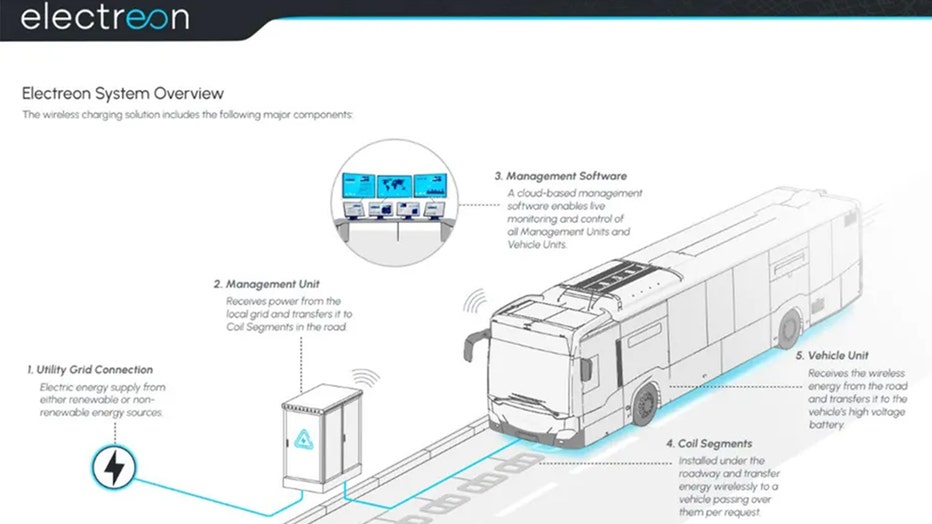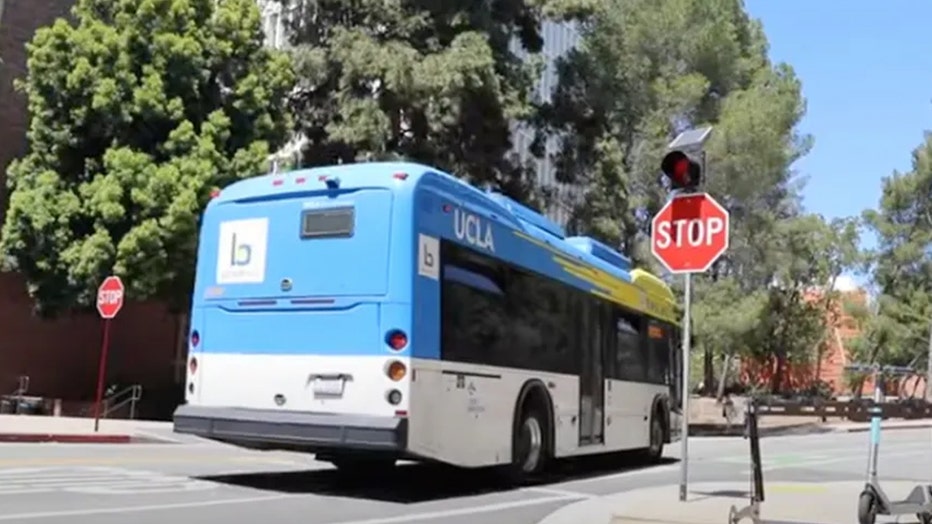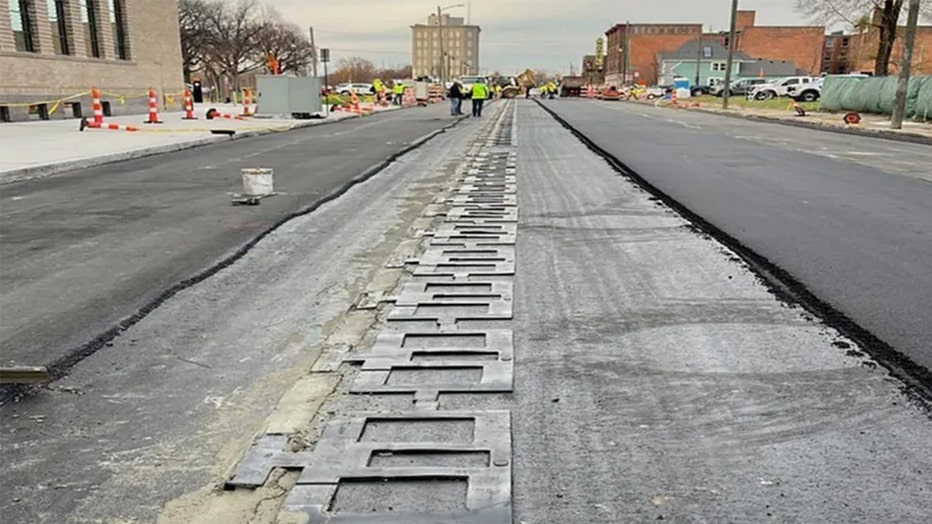California taxpayers paying nearly $20M for wireless electric charging project at UCLA
LOS ANGELES - Wireless electric vehicle (EV) charging is coming to a Southern California university's streets with a hefty price tag that taxpayers are footing much of the bill for.
The University of California, Los Angeles (UCLA) is partnering with CALSTART and Electreon Wireless, Inc. to implement the charging infrastructure part of the "UCLA/Westwood Zero Emission Transit Service Expansion: Deploying Wireless Charging at Scale" project, according to documentation from the California State Transportation Agency (CalSTA).
The project has a total budget of just over $34,950,000, with $19,850,000 awarded from the state.
"The nearly $20 million of state funds comes from the Transit and Intercity Rail Capital Program, which is funded by two primary sources — 10% of statewide cap and trade auction proceeds, and a portion of the Transportation Improvement Fee that is collected during vehicle registration," a CalSTA statement to FOX Business said.

An Electreon diagram shows how the wireless electric charging would work on UCLA's BruinBus. (Electreon via UCLA Transportation)
"The project was selected through a detailed review process that includes a technical committee from multiple state agencies and departments, as well as an executive selection committee, before being awarded by the Secretary of Transportation," the statement added.
In order for a project to be awarded funds, it must show evidence of increased ridership and reduced greenhouse gas emissions, CalSTA states.
"The innovation being demonstrated in this project is of interest for its potential to have statewide benefit if it were applied within more transit electrification projects, a consideration in the award selection," CalSTA stated in its award summary.

UCLA's BruinBus seen on a campus street. The university's transportation department had to prove increased ridership and reduced greenhouse gas emissions in order to be awarded millions for the project. | Fox News
The idea is to charge the university's electric buses while they drive and are at stops, utilizing wireless chargers embedded in the asphalt, rather than when they are parked at night, director of UCLA Fleet and Transit Clinton Bench told Fast Company magazine, adding that the university is "committed to being a proving ground for new technologies."
While installation of the tech can be costly, Bench says the inductive charging can be cost-competitive with standard EV chargers. Thin charging coils can be added and connected when roads are due for resurfacing, and receptors can be added to electric vehicles to communicate with them and juice up.
"Inductive charging coils will be installed below the road along transit routes on Charles E. Young Dr., roughly between the Westwood Plaza intersection and Murphy Hall, allowing for the wireless charging of electric passenger shuttles and heavy-duty buses while the vehicle drives," UCLA said in a press release.
"Additionally, static wireless charging will be deployed at passenger pick-up and drop-off locations and transit depots, including the new UCLA transit hub, to charge while vehicles are stopped," the school added. "This mixed-use approach to wireless charging will allow UCLA to reap the environmental benefits of an expanded electrified fleet while minimizing vehicle downtime for charging and minimizing the size and weight of the vehicle’s battery."
UCLA is hosting the Olympic Village for the 2028 Olympic Games, which will require the daily transport of about 15,000 athletes around the Los Angeles region.
"This transformative grant will significantly enhance our transportation network, providing a cleaner, more efficient BruinBus fleet that aligns with our commitment to sustainability and innovation," Tony Lucas, executive director of UCLA Events and Transportation, said in a statement.

Inductive wireless charging infrastructure shown on a street in Detroit in November 2023. (UCLA Transportation via CalSTA)
Nonprofit CALSTART will be providing project management support, collecting data and disseminating information "in an unbiased fashion," a statement to FOX Business reads.
The project "is expected to support the equivalent of 215 full-time jobs with grant funding supporting 48 full-time jobs directly," CALSTART said.

